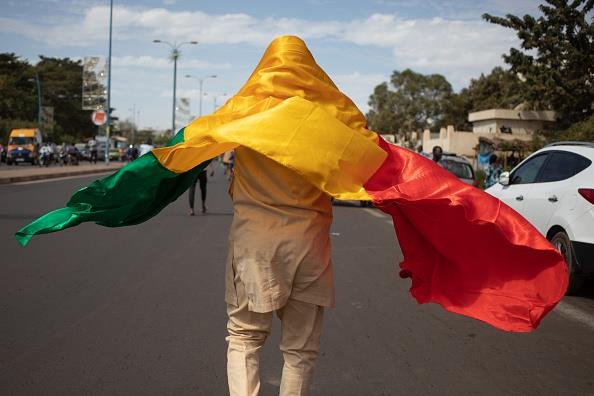Ibrahim Traoré: Steering Burkina Faso Through a Transformation-Opinion.
By Anglebert Bonkoungou
In the wake of the inaugural summit of the Alliance of Sahel States (AES) on 6th July, 2024, in Niamey, Niger, Captain Ibrahim Traoré, President of Burkina Faso, has been under the spotlight. His actions and policies are reshaping the geopolitical landscape of the Sahel region. As the leaders of Burkina Faso, Mali, and Niger unite to forge a new path to sovereignty, cooperation and security through mutual defence, Captain Traoré, through his influence and leadership style, is considered as a driving force behind the Alliance’s emerging narrative.
Championing Sovereignty and Regional Independence

Captain Ibrahim Traoré’s rise to power in Burkina Faso marked a decisive turn in the country’s political trajectory. Known for his forthright approach and military background, Traoré has consistently emphasised the importance of national sovereignty and self-reliance. His leadership style, characterised by a mix of pragmatism and assertiveness, has resonated with many Burkinabè, AES citizens and even Africans, who consider him as a protector of national dignity in the face of external pressures.
At the Niamey Summit, Traoré reiterated his support to the irrevocable joint decision to withdraw from the Economic Community of West African States (ECOWAS); a move that underscored the alliance’s commitment to breaking free from what he and the other two leaders consider as undue external interference. This stance is reflective of Traoré’s broader vision for Burkina Faso—a vision that prioritises the nation’s autonomy in making strategic decisions that best serve her interests.
In addition to advocating for sovereignty, Traoré has also pushed back against sanctions imposed by international bodies such as the West African Economic and Monetary Union (UEMOA). His efforts contributed to the lifting of these sanctions, reaffirming Burkina Faso’s right to self-determination and highlighting the resolve of his administration to resist external pressures that could undermine the country’s political and economic stability.
Strengthening Security and Combating Terrorism
One of the most pressing challenges facing Burkina Faso and its neighbours is the pervasive terrorism threat. The Sahel region has been a hotbed of jihadist insurgencies, and Burkina Faso has not been spared from the violence and instability that these groups pose. Captain Traoré has been at the forefront of national and regional security initiatives, advocating for a united front against terrorist activities.
A significant aspect of Captain Traoré’s strategy to combat terrorism and ensure national security involves enhancing the defense capabilities of Burkina Faso. On 6th June, 2024, Traoré took a major step by delivering an extensive array of military equipment to the armed forces. This included combat vehicles resistant to improvised explosive devices, weaponry, ammunition, and engineering equipment such as excavators, truck carriers, and tankers. This initiative aims to continuously strengthen the operational capacities of the fighting forces on the ground. Earlier, on 12th January, 2024, Traoré provided the Ministry of Defense with a substantial lot of rolling stock, combat weapons, and ammunition. This move marked a new phase in the war against terrorism. According to Traoré, this delivery was part of a strategic equipment program for the Burkinabè Armed Forces, made possible by the contributions of citizens. Traoré’s statement, “Commencez le développement tant attendu de la guerre” (Start the long-awaited development of the war), signaled a determined shift towards more aggressive and well-equipped military operations. Traoré’s administration has made significant investments in modern military equipment, including drones for surveillance and combat. These enhancements have provided the Burkinabè military with advanced capabilities to monitor and engage terrorist threats more effectively. The use of drones, in particular, has revolutionised the way the military conducts operations, offering precise intelligence and the ability to carry out targeted strikes.
At the AES Summit, he praised the collective efforts of the Joint Sahel States Force (FC/AES) in combating terrorism and securing key regions, including the recent liberation of Kidal in Mali—a symbolic victory for the Malian Army and the Alliance. Under Traoré’s leadership, Burkina Faso has not only bolstered its own defence capabilities but has also played a crucial role in coordinating regional security efforts. His commitment to mutual defence and security cooperation within AES has been instrumental in fostering a sense of shared responsibility among the member states.
The administration has implemented a comprehensive strategy to enhance national security. This includes increasing the defence budget, modernizing military equipment, and the recruitment of Volunteers for the Homeland Defence (VDPs) and providing them and the Armed Forces with extensive training and capacity building. These measures have improved the effectiveness of Burkina Faso’s military operations against terrorist groups, leading to significant gains in reclaiming territory and reducing the insurgency threat.
Driving Development and Regional Integration
Beyond security, Captain Traoré is a strong advocate of economic development and regional integration. Recognising the interconnectedness of the Sahel challenges, he has been a key proponent of AES plans to enhance cooperation in critical sectors such as agriculture, energy, and infrastructure. The establishment of the AES Investment Bank and a Stabilization Fund, initiatives championed by Traoré, are intended to catalyse development projects that can uplift the region economically and socially.
His vision for development is holistic, encompassing social cohesion, youth empowerment, and cultural revitalisation. He has stressed the need for education and professional training to equip the younger generation with the skills necessary to thrive in a changing economic landscape. His administration’s focus on these areas is seen as a strategic effort to address the root causes of instability and create a more resilient society.
Promoting Social Welfare and Human Development
Captain Traoré’s vision extends beyond economic growth to encompass the overall well-being of Burkina Faso’s citizens. His administration has launched several social welfare programs aimed at improving healthcare, education and social protection. Healthcare reforms focus on enhancing the accessibility and quality of medical services, particularly in rural areas. In the education sector, policies aim to increase school enrolment, improve the quality of education, and promote vocational training. Social protection initiatives support vulnerable populations, including women, children, and the elderly, aiming to reduce poverty, promote gender equality, and enhance social inclusion.
Forging the Confederation of Sahel States
Among the summit’s most significant outcomes was the adoption of the Treaty creating the Alliance of Sahel States (AES) Confederation. This landmark agreement aimed to deepen integration and cooperation among Burkina Faso, Mali, and Niger, transcending mere military collaboration to encompass political coordination, economic cooperation, and social development initiatives. The Confederation sought to pool resources and harmonize policies across key sectors such as agriculture, food security, water management, energy, trade, and infrastructure.
Embracing Effective Communication and Diplomacy
Recognising the importance of public engagement and international diplomacy, the summit mandated the development of a robust communication strategy. This strategy aimed to foster transparency, accountability, and public trust by utilizing among others, national languages, across media platforms and establishing certified digital channels to disseminate information about the Confederation’s activities. On the diplomatic level, the Alliance of Sahel States Confederation has committed to speaking with a unified voice on the global stage, advocating for their shared interests and priorities in international forums.
Conclusion: Towards a Resilient Future
The inaugural summit of the Alliance of Sahel States marked a defining moment in the history of the region, ushering in a new era of unity, sovereignty, and resilience. By forging the AES Confederation, Burkina Faso, Mali, and Niger demonstrated their determination to overcome internal divisions and external pressures, paving the way for enhanced regional cooperation and collective security.
As they embark on this transformative journey, the Alliance of Sahel States faces formidable challenges and opportunities. The path ahead will require steadfast commitment to inclusive governance, sustainable development, and peaceful coexistence. By harnessing their collective strengths and resources, the Sahel nations stand poised to realise their shared vision of a prosperous and secure future for all their citizens.
The next session of the College of Heads of State, the body gathering the Heads of State of the Confederation, scheduled for 2025, promises further diplomatic strides and collaborative initiatives, reinforcing the Confederation’s commitment to regional integration and global engagement. With solidarity as their guiding principle, Burkina Faso, Mali, and Niger are poised to navigate the complexities of the Sahel region with resilience, optimism, and a shared determination to build a brighter future.
Captain Ibrahim Traoré’s leadership, characterised by visionary reforms and a commitment to regional unity, continues to be a beacon of hope for Burkina Faso and the broader Sahel region. His efforts to forge a new path for his nation and the Sahel stand as a testament to the power of resilient and inclusive governance.
Anglebert Bonkoungou is a student of Mass Communication, at Veritas University, Abuja.




